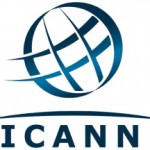 ICANN is scheduled to reveal the names of gTLD (generic top-level domain) applicants, along with the new custom domain extensions they have applied for, on 13 June 2012 in London. Frank Schilling, GoDaddy, and Google are the three who are looked upon the most to see what interesting TLDs they might have applied for. (Frank Schilling is famous for aggressive registration of about 320,000 domains which earned him quite a big fortune.)
ICANN is scheduled to reveal the names of gTLD (generic top-level domain) applicants, along with the new custom domain extensions they have applied for, on 13 June 2012 in London. Frank Schilling, GoDaddy, and Google are the three who are looked upon the most to see what interesting TLDs they might have applied for. (Frank Schilling is famous for aggressive registration of about 320,000 domains which earned him quite a big fortune.)
For those that aren’t familiar with this topic, here is a quick history (courtesy Wikipedia):
On June 20, 2011 ICANN’s board voted to end most restrictions on the generic top-level domain names (gTLD) from the 22 currently available. Companies and organizations will be able to choose essentially arbitrary top-level Internet domains. The use of non-Latin characters (such as Cyrillic, Arabic, Chinese, etc.) will also be allowed in gTLDs.
As analysts predict, the move to end restrictions might pose a considerable threat to .com, usually labeled as the king of TLDs. Many organizations have already made public their decision/application to use new custom gTLDs vs traditional domains.
 There is also expected to be lots of clashes for these new Internet properties, especially for the run-after gTLDs such as .music, .video, .service, etc. However, the first thing each of the applicants might have taken care to apply for, of course, would have been gTLDs with their own organization/product name(s). For example, Google has reportedly applied for .youtube and .docs, GoDaddy for .godaddy, Canon for .canon, and the list goes on.
There is also expected to be lots of clashes for these new Internet properties, especially for the run-after gTLDs such as .music, .video, .service, etc. However, the first thing each of the applicants might have taken care to apply for, of course, would have been gTLDs with their own organization/product name(s). For example, Google has reportedly applied for .youtube and .docs, GoDaddy for .godaddy, Canon for .canon, and the list goes on.
The change from a .com dominated world to a world where anything can be a domain might take years to be reflected in the daily lives of netizen; we will have to wait and see whether this change really makes any difference.
For now, tomorrow is the day that will reveal, as CNET puts it, the names of the greatest Internet landgrabbers in history.
Do you believe that this is a move for the good? Or, do you think that this move might end up to be messier than anyone could think of?
[via CNET News | Image Courtesy: ICANN]

 Email article
Email article



